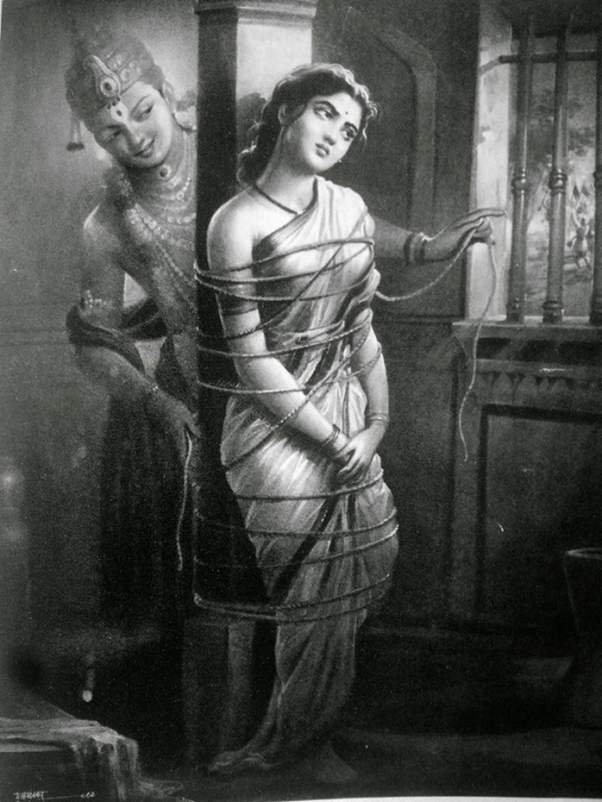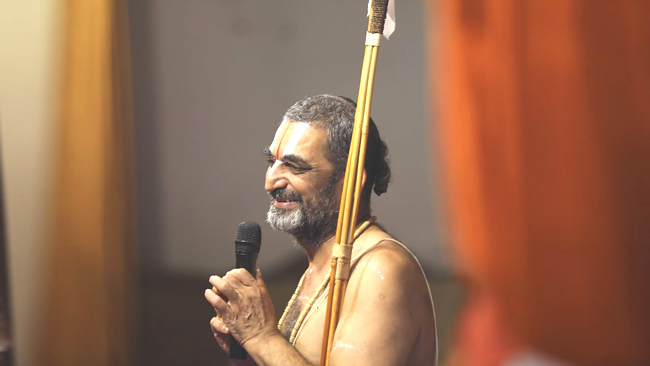While there are lakhs of temples and millions of devotees, there is also a question that many people wonder at some point. When God knows everything about us, what is the necessity of a prayer? Why should I specifically seek something from God when He already knows that I need help from Him?
Let’s say we are sad deep within but are keeping it to ourselves. Even if we have not explicitly stated our pain with anyone – our parents, spouse, children and/or friends would guess that something is wrong. They try to check upon us. Here, even though we have not explicitly shared anything with our loved ones, our association with them from a long time allows them to guess/understand that we are in pain and that we might need some help.

How about with God? Scriptures state that God is the only companion who has been with us from the beginning of our existence. So, He must know what we are going through in much more detail than any of the other companions. Then why does He require us to explicitly spell out to Him (what we seek from Him) through a prayer?
Nammalwar, despite being greatly devoted to God, spells out clearly: ‘God – I surrender to you, I belong to you, I am all yours.’
Why did Nammalwar spell this out to God?
What is the help that Nammalwar received from God?
The help that Nammalwar received is: the experience of union with God in his heart. The union he experienced is so intimate and real. There are several examples where God helped devotees. How is this different from what Nammalwar is experiencing?
Example one: Sri Krishna also helped Arjuna. He in fact promised liberation to Arjuna saying:
అహం త్వా సర్వపాపేభ్యో మోక్షయిష్యామి మా శుచ:
(I will liberate you from karma and grant you eternal happiness)
But Arjuna had to fight his battles and lead the rest of his life even after that vow.
Example two: After Ramanujacharya submitted saranagati gadya (a prayer of submission) to God, He answered his prayer saying:
మాతే భూ తత్ర సంసేవ్య నిత్య కింకరో భవిష్యసి
(No questions or doubts! You will serve God forever!)
But Ramanujacharyaworked on several major initiatives on temple reforms and social reforms after this promise.
Whereas, Nammalwar experiences oneness with God in its most intimate form, right within the heart. He felt constant close companionship of God. This is how the help he received from God is different to that of Arjuna or Ramanuja. Not only is he experiencing this help from God, but is realising that this help is in its greatest form.
What does it mean for a help to be in its greatest form?
- Udavi (help) – The grantor here gives the recipient what he asked for, and moves on to something else as if there isn’t any connection with the recipient.
- Nal udavi (help in its good form)– The grantor here helps the recipient and does not expect anything in return from him.
- Peru nal udavi (help in its greatest form) – The grantor here not just helps but serves the recipient with love, and cannot withstand any form of separation from the recipient until he is fully and completely okay, like a mother constantly looking after her child.
Nammalwar experiences such greatest help from God in its greatest form. Thus, he is overwhelmed and utters out ‘I am all yours’.
If Nammalwar has not said these words out clearly, then would God not know his feeling?
God would know his feeling even if not spelled out as long as he genuinely feels it from the bottom of his heart. But, He still requires us to spell it out. Because, this is how he chose to separate everyone else from the souls He will liberate.
| ఇదు సర్వముక్తి ప్రసఙ్గ పరిహారార్థమ్, బుద్ధిసమాధానార్థమ్, చైతన్యకార్యమ్, రాగప్రాప్తమ్, స్వరూప నిష్ఠమ్, అప్రతిషేధ ద్యోతకమ్ |
| – Charama Sloka Sutra: 233 |
(idu sarva mukthi prasanga pariharardham, buddhi samaadhaanardham, chaitanya kaaryam, raaga praptham, swarupa nishnam, aprathishe:dha dyothakam)
If He does not have any such requirement, then everyone and everything would need to be liberated (sarva sanga prasanga pariharardham). God does not expect this explicit spell out from any inanimate object. However, from a soul like us – If and when we realise God’s nature and the way He is with us all the time, the explicit spell out becomes a devotion driven natural (raaga praptham) outpouring of sanctified knowledge (chaitanya kaaryam). The greatness of realisation is so strong and so huge that the resulting gratitude does not hold within him/her any longer! It outpours in the form of such explicit words. God then takes ownership of dissolving all the hurdles in the path of the such soul’s liberation from the karmic bondage.

From the teachings of Sri Chinna Jeeyar Swamiji
– Bhagavad Vishayam class, 19 th July 2019



